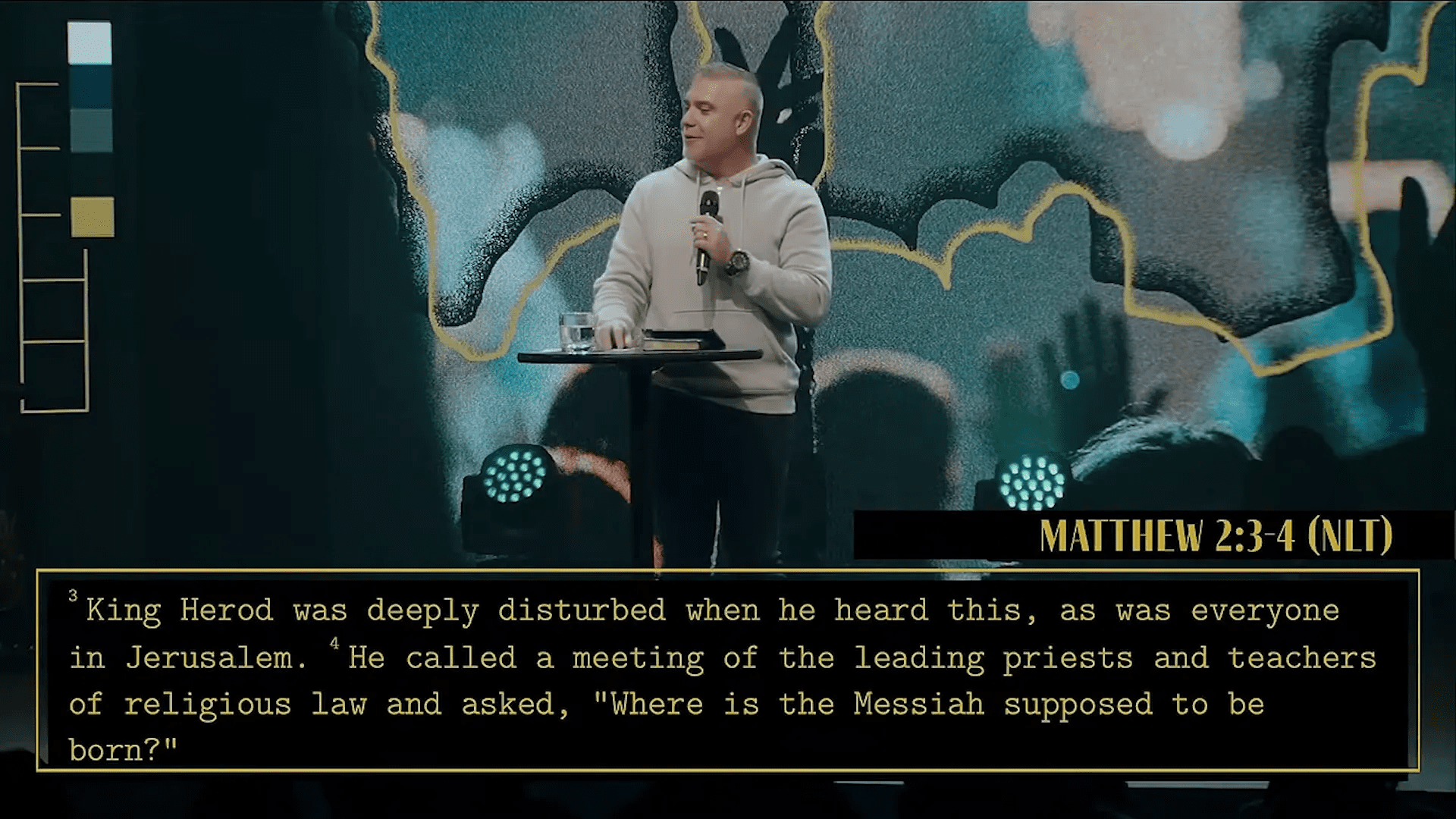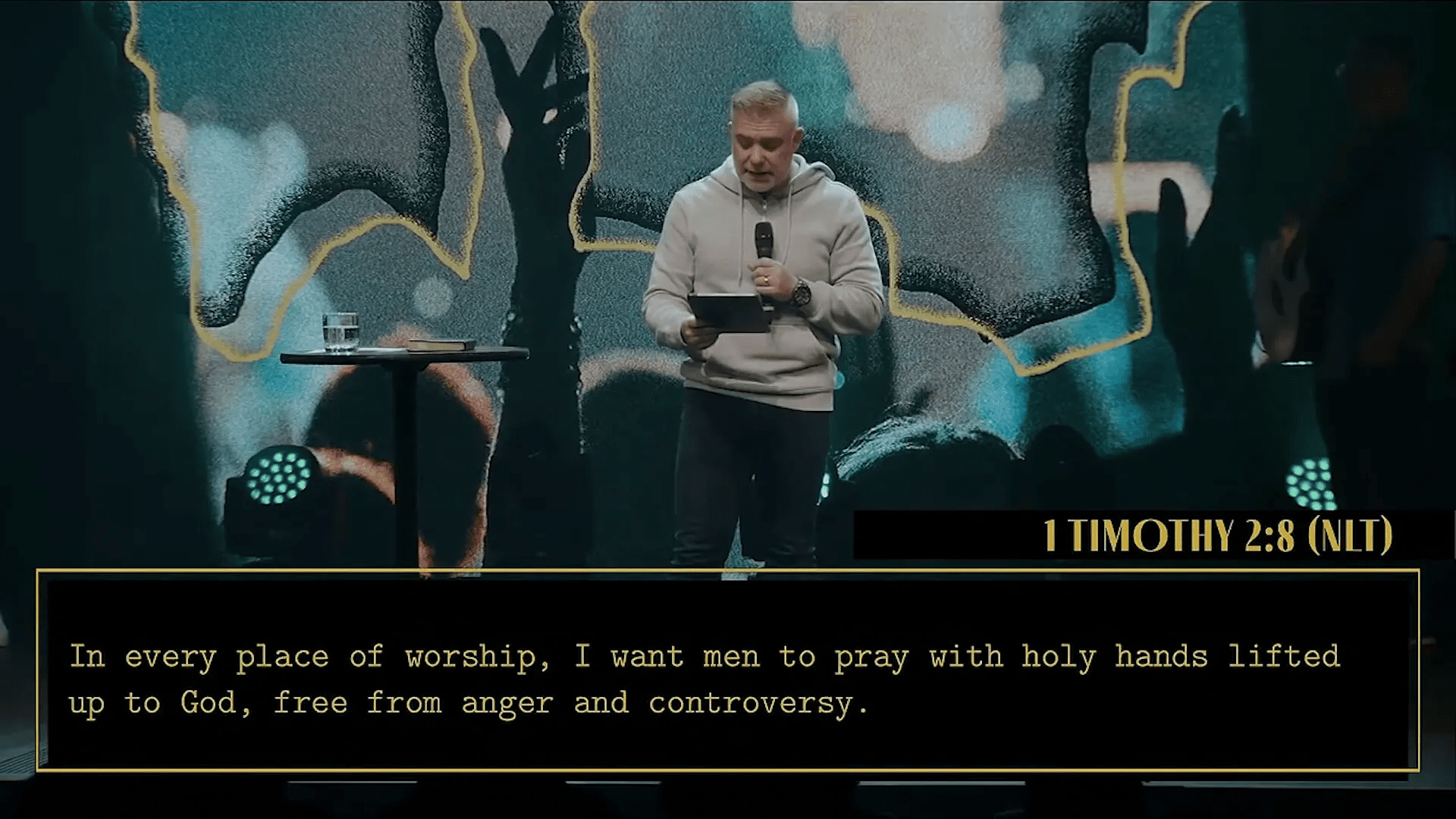To Him | Week 1 | Pastor Ben Pierce
To Him: Navigating the Competition for Your Worship
As the Christmas season approaches, it’s essential to refocus our hearts on the true meaning of worship. This blog explores how external distractions can hinder our ability to connect with God and emphasizes the importance of intentional worship during this busy time of year.
The Christmas Story and the Purpose of Worship
As we reflect on the Christmas story, it’s crucial to understand the purpose of worship that it embodies. In Matthew 2:1-2, we read about the wise men who traveled great distances, driven by a singular purpose: to worship the newborn King. This moment in history signifies the first time God took on human form, inviting us into a personal relationship through worship.
Worship is not merely a response to His birth; it is an acknowledgment of who He is. The wise men didn’t come to admire a child; they came to honor the King of Kings. This act of worship highlights the transformative power of encountering God in human form, a powerful reminder that worship should be intentional and heartfelt.

Recognizing the Competition for Your Attention
In today’s world, distractions abound, particularly during the festive season. The hustle and bustle can easily cloud our focus and dilute our worship. Just like the wise men faced the challenge of navigating to Jesus amid competing influences, we too must identify what distracts us from our worship.
In Matthew 2:3, we see King Herod disturbed by the news of the newborn King. Herod represents the distractions and competing interests that can sway us from true worship. The wise men had a choice: to be swayed by Herod’s power or to remain steadfast in their purpose to worship Jesus.

Choosing to Worship: A Personal Journey
Choosing to worship is a personal journey that requires intentionality. The wise men chose to embark on a long journey, motivated by a desire to worship. Similarly, we must choose to engage in worship, setting aside distractions and focusing on our relationship with God.
Worship is not contingent on feelings; it is a decision we make. Hebrews 13:15 reminds us to continually offer a sacrifice of praise. This sacrifice is not always easy; it requires effort and commitment. However, the rewards of drawing closer to God through worship are profound and life-changing.

The Importance of Intentional Worship
Intentional worship is vital to fostering a genuine relationship with God. The wise men brought gifts of gold, frankincense, and myrrh, symbolizing their recognition of Jesus’ worth. Worship that costs us something is worship that truly honors God.
When we engage in worship, we should do so with our whole hearts. This involves surrendering our distractions and focusing our attention on God. As we see in Matthew 2:11, the wise men bowed down and worshipped Him. Their posture illustrates the humility and reverence that should accompany our worship.

Opposition to Your Worship
Worship is not merely an act; it’s a spiritual journey that invites challenges. The wise men faced opposition from King Herod, who sought to thwart their mission. Similarly, you may encounter various forms of opposition in your pursuit of true worship, from external pressures to internal doubts.
Consider what distracts you. Is it a busy schedule, personal insecurities, or perhaps the allure of worldly pursuits? Each of these can serve as a barrier, preventing you from fully engaging in worship. Recognizing these obstacles is the first step towards overcoming them.

Identifying Your Opposition
To address opposition, you must first identify its source. Ask yourself: What hinders my worship? Here are some common forms of opposition:
- Distractions: Everyday life can pull your focus away from God.
- Insecurities: Fear of judgment may keep you from expressing your worship freely.
- Spiritual Attacks: The enemy often seeks to undermine your faith and commitment.
Once you recognize these challenges, you can take steps to confront them. Perhaps it means carving out time each day for prayer, or it could involve seeking accountability within your community.

Worship as a Gift to God
Worship is, at its core, a gift we offer to God. The gifts brought by the wise men—gold, frankincense, and myrrh—were not just material offerings; they held deep significance and value. Similarly, your worship is a reflection of your heart’s posture towards God.
When you worship, consider what you are giving to God. Are you bringing your best? Worship that costs you something—time, energy, or vulnerability—holds greater value. It signifies a heart that acknowledges God’s worthiness and responds in kind.

The Value of Your Worship
Worship that is intentional and sacrificial is transformative. Here are ways to enhance the value of your worship:
- Prioritise Time: Set aside dedicated time for worship, free from distractions.
- Engage Emotionally: Allow yourself to feel and express your adoration for God.
- Offer Your Whole Self: Worship with your mind, body, and spirit. This includes lifting hands, singing, and being present.
When you engage in worship fully, you invite God into your life in profound ways. This act of giving is not just for God’s benefit; it enriches your relationship with Him.

Practicing Worship: A Laboratory Experience
Worship is not just a ritual; it’s a practice that grows deeper with intention. Think of it as a laboratory where you experiment with different expressions of worship. This season, challenge yourself to explore various ways to connect with God.
Start by experimenting with different forms of worship. This could include singing, praying, meditating on scripture, or serving others in His name. Each of these practices can unlock new dimensions of your faith.

Creating a Worship Routine
Establishing a routine can help you cultivate a lifestyle of worship. Here are some tips for creating a meaningful worship practice:
- Start Small: Begin with short, focused times of worship. Gradually increase the duration as you grow more comfortable.
- Incorporate Music: Use worship music to set the atmosphere. Choose songs that resonate with your spirit.
- Reflect and Journal: Write down your thoughts, prayers, and experiences during your worship times.
Remember, worship is a process. It’s about the journey, not just the destination. As you practice, you’ll find that your heart becomes more attuned to God’s presence.
